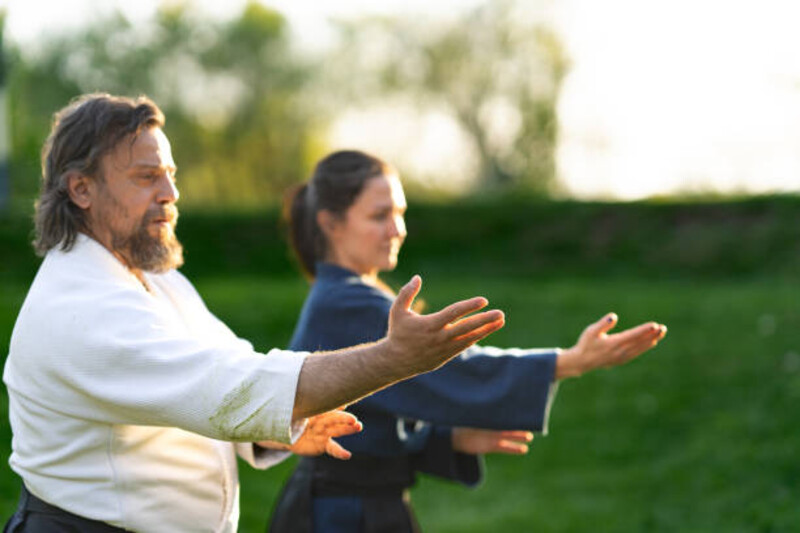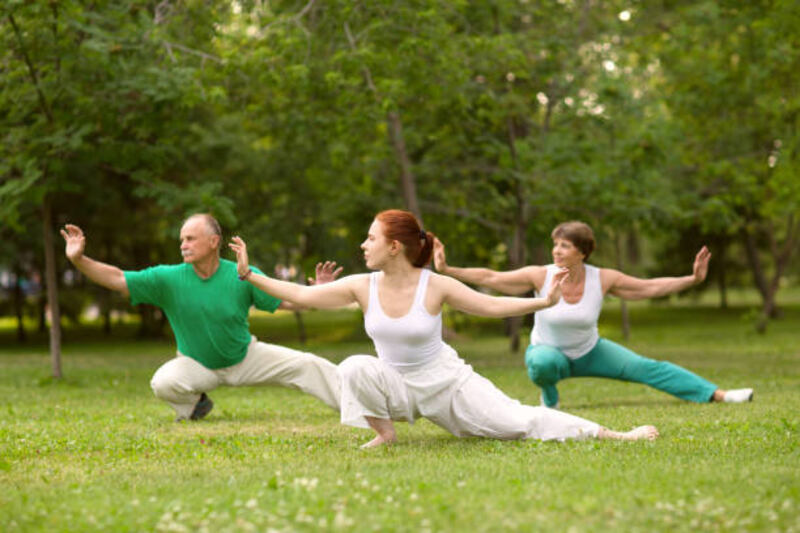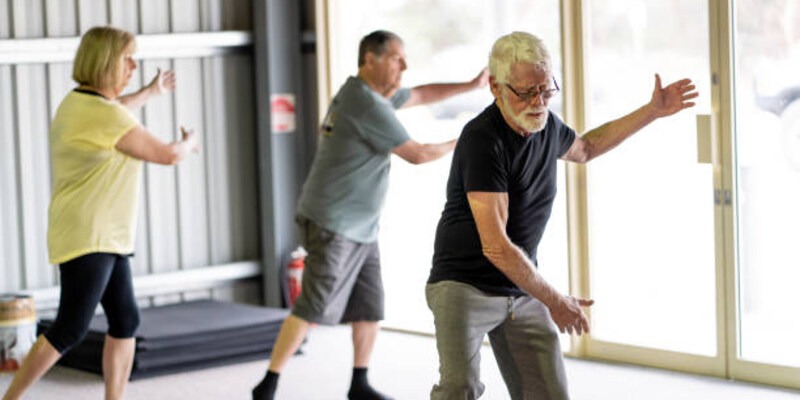In a world filled with the hustle and bustle of modern life, finding a holistic approach to wellness is becoming increasingly important. Tai Chi, an ancient Chinese martial art, offers a unique and gentle way to achieve both physical and mental well-being. Often described as "meditation in motion," Tai Chi combines slow, flowing movements with deep breathing and mindfulness. Let's explore the five wellness benefits of Tai Chi that make it a popular choice for individuals seeking a comprehensive approach to health.
1. Stress Reduction and Relaxation:
One of the primary benefits of practicing Tai Chi is its profound ability to reduce stress and induce a state of relaxation. The slow, rhythmic movements promote a sense of calm, helping individuals to unwind and release tension. The focus on deep, diaphragmatic breathing further enhances the relaxation response, reducing the levels of stress hormones in the body. This makes Tai Chi an excellent practice for those seeking a natural and accessible way to manage the stresses of everyday life.
Moreover, the meditative aspect of Tai Chi encourages mindfulness, allowing practitioners to stay present in the moment. This mindfulness not only alleviates stress but also fosters a greater awareness of thoughts and emotions, promoting a more balanced and centered state of being.
2. Improved Balance and Coordination:
Tai Chi is renowned for its emphasis on balance and coordination, making it a valuable practice for individuals of all ages, especially seniors. The slow and controlled movements engage various muscle groups, promoting strength and stability. As a weight-bearing exercise, Tai Chi contributes to better bone density, reducing the risk of fractures and falls, particularly in older adults.
The deliberate weight shifts and fluid transitions in Tai Chi routines enhance proprioception—the body's awareness of its position in space. This heightened sense of balance not only prevents accidents but also improves overall coordination, making daily activities easier and more efficient. The focus on controlled movements also benefits individuals recovering from injuries or managing chronic conditions, fostering a gradual and safe path to rehabilitation.
3. Joint Flexibility and Pain Management:
Incorporating Tai Chi into a wellness routine contributes to increased joint flexibility and reduced pain, making it an excellent choice for those dealing with arthritis or other musculoskeletal issues. The gentle, low-impact nature of Tai Chi allows individuals to move their joints through a full range of motion without putting excessive strain on them.
The slow and deliberate stretching in Tai Chi exercises helps lubricate the joints, preventing stiffness and promoting flexibility. As a result, individuals often experience relief from chronic pain conditions such as arthritis and back pain. Regular practice can also enhance muscle strength and endurance, providing additional support to the joints and further alleviating discomfort.
4. Enhanced Mental Health:
Beyond its physical benefits, Tai Chi has a profound impact on mental well-being. The meditative and mindful aspects of the practice contribute to stress reduction, but they also play a crucial role in promoting mental clarity and focus. Tai Chi encourages a state of relaxed alertness, sharpening cognitive function and improving concentration.
Moreover, research suggests that Tai Chi may have a positive impact on mood and may be beneficial for individuals dealing with anxiety and depression. The combination of breath control, movement, and mindfulness in Tai Chi fosters a sense of inner peace and emotional balance. This holistic approach to mental health sets Tai Chi apart as a practice that addresses both the body and the mind.
5. Cardiovascular Health:
While Tai Chi is often associated with gentle and slow movements, it can provide a surprisingly effective cardiovascular workout. The continuous, flowing sequences elevate the heart rate and improve circulation, contributing to better cardiovascular health. Regular practice of Tai Chi has been linked to lower blood pressure and a reduced risk of heart disease.
Unlike more strenuous forms of exercise, Tai Chi is accessible to individuals of varying fitness levels and ages. This makes it an attractive option for those looking to improve their cardiovascular fitness without the impact and intensity of high-impact activities. The combination of cardiovascular benefits and the low risk of injury makes Tai Chi a versatile and sustainable exercise option for maintaining heart health.
How to get started with Tai Chi?
If you're interested in experiencing the numerous benefits of Tai Chi for yourself, here are a few tips to help you get started on your journey:
- Look for local classes or workshops offered by certified instructors who have expertise in teaching Tai Chi. They can guide you through the proper techniques and help you understand the principles behind this ancient practice.
- Start with shorter sessions, perhaps 15-20 minutes, and gradually increase the duration as your body adapts and becomes more comfortable with the movements. Remember, Tai Chi is a gentle and low-impact exercise that focuses on fluidity and mindfulness.
- When practicing Tai Chi, it's important to wear comfortable clothing that allows for ease of movement. Loose-fitting attire made of breathable fabric is recommended. Additionally, consider using supportive shoes that provide stability and protect your feet during the practice.
- To truly reap the benefits of Tai Chi, consistency is key. Aim to practice regularly, ideally for at least 30 minutes a day. By incorporating Tai Chi into your daily routine, you'll experience improved balance, flexibility, and mental well-being.
- Don't be discouraged if it takes time to learn the movements and become comfortable with them. Tai Chi is a lifelong practice that requires patience and dedication. Embrace the learning process and enjoy the journey towards mastering this beautiful art form.
Conclusion:
Tai Chi offers a holistic approach to wellness, addressing the physical, mental, and emotional aspects of health. Its gentle and accessible nature makes it suitable for individuals of all ages and fitness levels. By incorporating Tai Chi into a regular wellness routine, individuals can experience reduced stress, improved balance, enhanced joint flexibility, better mental health, and cardiovascular benefits. As we navigate the demands of modern life, Tai Chi stands out as a time-tested practice that provides a path to a more balanced and healthier lifestyle.




